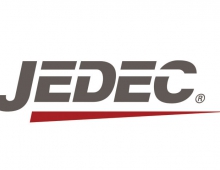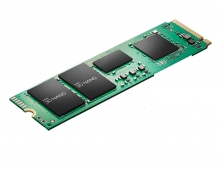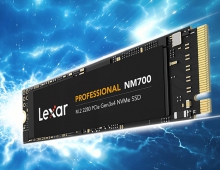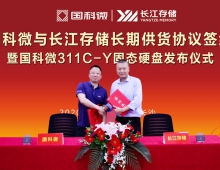
TDK Launches SDG4A Series of Solid State Drives
TDK today launched the SDG4A series of serial ATA II compatible industrial solid state drives (SSDs) in 2.5 inch form factor with a maximum capacity of 512 GByte.
The product employs the newly developed TDK SSD Controller GBDriver RS4 Series. Even without using DRAM cache memory, this makes it possible to meet the requirements for SSDs in industrial applications, with an effective access speed of 180 MByte/sec.
The use of the latest MLC type NAND flash memory and the addition of a read retry function indispensable for enhancing data reliability are major advantages of the new products, augmented by features of the existing GBDriver series such as auto recovery, data randomizer, and auto refresh. Integrated control of these functions enables the product to easily accommodate coming trends in flash memory.
Data reliability is ensured by the Enhanced ECC function. This provides the option to balance cost and reliability in an optimized configuration, allowing customer to access the cost benefits of MLC NAND without incurring the reliability drawbacks inherent in conventional designs.
The GBDriver power interruption tolerance algorithm and an integrated power supply backup circuit are standard features, making the SATA Flash Drive resistant against power supply problems.
The static wear leveling algorithm averages the write and erase process over all blocks of the memory area, thereby improving the lifespan of installed flash memory. SMART (Self-Monitoring & Analysis Reporting Technology) provides information about the number of times that memory blocks have been erased (programmed), which facilitates quantitative lifespan management of flash storage.
Data security has also been enhanced. In addition to ATA standard security functions, AES 128-bit encryption is also available. This makes it possible to store data in the NAND type flash memory in encrypted form, to guard against the risk of data leaks and tampering.
The TDK SDG4A series of industrial SSDs are SATA flash memory drives suited for use as replacements for hard disc drives in industrial equipment and embedded devices. They provide high-speed performance, data reliability, storage lifespan, and data security at the highest levels in the industry.
The use of the latest MLC type NAND flash memory and the addition of a read retry function indispensable for enhancing data reliability are major advantages of the new products, augmented by features of the existing GBDriver series such as auto recovery, data randomizer, and auto refresh. Integrated control of these functions enables the product to easily accommodate coming trends in flash memory.
Data reliability is ensured by the Enhanced ECC function. This provides the option to balance cost and reliability in an optimized configuration, allowing customer to access the cost benefits of MLC NAND without incurring the reliability drawbacks inherent in conventional designs.
The GBDriver power interruption tolerance algorithm and an integrated power supply backup circuit are standard features, making the SATA Flash Drive resistant against power supply problems.
The static wear leveling algorithm averages the write and erase process over all blocks of the memory area, thereby improving the lifespan of installed flash memory. SMART (Self-Monitoring & Analysis Reporting Technology) provides information about the number of times that memory blocks have been erased (programmed), which facilitates quantitative lifespan management of flash storage.
Data security has also been enhanced. In addition to ATA standard security functions, AES 128-bit encryption is also available. This makes it possible to store data in the NAND type flash memory in encrypted form, to guard against the risk of data leaks and tampering.
The TDK SDG4A series of industrial SSDs are SATA flash memory drives suited for use as replacements for hard disc drives in industrial equipment and embedded devices. They provide high-speed performance, data reliability, storage lifespan, and data security at the highest levels in the industry.





















